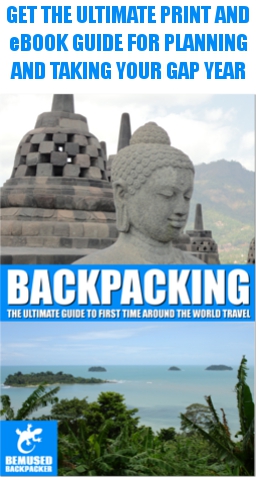
Vietnam is a unique paradox of a country, few places can boast so much forced changed over so short a time period, yet it retains an inimitable, ageless charm where old traditions die hard and time itself seems to have stood still.
Despite the fact that you can look in one direction and be transported back in time 20, 30, 50 or 100 years, you can turn your head and see the relentless pace of entrepreneurial spirit as modern life encroaches on the past. The traditional views of Vietnam are all still here in abundance. The glistening rice paddies, the pagodas, the breathtaking coastlines and dreamlike mountains and limestone rock formations, the quaint bicycles and traditional hats, but they are also increasingly sitting alongside the glitzy economic and social dynamism of cities such as Ho Chi Minh. New hotels are springing up all the time, new modern roads are being built as access into this once hard to reach country is improving and tourism begins to take hold like a double edged sword.
Culture And Etiquette.
Memories of war are still strong here, and attitudes toward the West and America in particular are not always pleasant. This is slowly changing however as the Vietnamese begin to look to the future instead of the past. Vietnam is a place to visit now, before it changes forever.
Vietnam has a wide and diverse number of religions in keeping with the rest of its South East Asian neighbours. These range from imported religions such as Buddhism and Catholicism, to more traditional indigenous religions based on animism, theism and ancestor worship.
Vietnam is one of the world’s last surviving communist states, and the Vietnamese have a deeply held pride about their country and traditions. They are generally welcoming of foreigners, but a certain level of respect and deference to tradition is expected and welcome.
Elders in Vietnamese society are held in high esteem, and should always be given respect. This manifests itself in daily life such as always giving right of way to an elderly person or giving up a seat for them.
Like in much of Asia, face is everything in Vietnamese society, and saving face is extremely important. Never show anger or shout, it will have the opposite effect from what you want and will just embarrass everyone, especially you.
What You Need To Know.
Visas.
The visa situation in Vietnam has a very complicated and cumbersome history and is still very much subject to change at a moments notice, so it is always a good idea to check for up to date information at your local Vietnamese embassy.
Most nationalities will require a Visa to enter Vietnam. There are 2 types, an E Visa and an E Visa on arrival and there is little difference between them. They last for 30 days after the date of arrival.
Health.
The following list of vaccinations are recommended for visits to Vietnam by the Centre of Disease Control and the NHS Fit For Travel website.
All travellers are strongly recommended to be up to date on their routine vaccinations including MMR, diptheria – pertusis – tetanus and varicella (chicken pox).
Tetanus – or the booster – and Typhoid are also strongly recommended if you have not got them already.
Hepatitis A and B, Japanese encephalitis, Rabies and yellow fever are recommended for at risk groups uch as those engaging in sexual contact, working with or spending time with animals, health workers, those spending long periods out in rural areas, or if you are spending more than a month in a higher risk area. Discuss this with your physician, specialist nurse or travel clinic to see which vaccinations are suitable for you.
Proof of a Yellow Fever Vaccination will be required if you are travelling from a country where the disease is present.
The majority of Vietnam is low to no risk of malaria and so antimalarials are not advised for the majority of travellers. There are pockets of the country that have a slightly raised risk but antimalarials are not normally recommended unless travellers are in a specifically high risk group. You will need to talk through your plans with a qualified professional.
Anti mosquito measures are advised at all times due to other mosquito borne diseases such as dengue and zika.
Read more:
Do You Really Need Anti Malarial Medication On Your Gap Year?
The Ultimate Guide To Travel Vaccinations.
Crime and Safety.
Vietnam is generally very safe for travellers who take reasonable and sensible precautions for their personal safety and security. The biggest problems are likely to be from overly pushy touts and beggars, and from a variety of common scams designed to part you from your cash. However, vendors overcharging and vastly ripping Western tourists off – especially Americans – is seen as acceptable by many, so be aware of how much things should cost and how much you are being charged. You don’t mind paying a little over the odds, but there’s a limit.
Read more:
The Reality Of Fear And The Truth About Travel Safety.
Costs and money.
Vietnam’s official currency is the dong, but USD is still accepted in major tourist centres at a pinch. All in all you are far better off using local currency and just keeping some dollars as emergency back up. Vietnam is a bit of a contrast when it comes to costs and budgets, with extreme budget travellers able to get by on roughly £10 – £15 GBP a day, and after that the sky is the limit. Mid range travellers can get a reasonably high level of comfort, private rooms, nice food and plenty of excursions on approximately £40 GBP a day.
ATMs are becoming more and more frequent in the larger cities and major tourist hubs, but are still sparse in more rural areas, so be careful to budget properly if you head off the beaten track.
Accommodation is spread right across the range, and you really can get ultra basic accommodation for just a few pounds, but you are looking at absolutely no comforts or mod cons. Spending £10 – £20 GBP will boost the comfort level significantly, and of course there are still the ultra expensive luxury hotels where the sky is the limit. Haggling is the norm here and you can sometimes negotiate a really good rate, especially in the off season.
Food is amazingly cheap however, and if you stick to the street stalls and markets (where food is often at it’s best) with the occassional splurge in a nice restaurant, then you will struggle to spend much at all. Meals from a street stall are less than £1 GBP, whilst a good meal from a fair restaurant will set you back about £2 GBP.
Transport is amazingly cheap too, especially if you stick to local public transport such as the traditional cyclo’s, and beware of taxi drivers (and sometimes bus drivers) hiking the price up as soon as they see a foreigner. Hiring a bike or a moped is reasonable too, but prices can range from a few pounds a day to £50 or more depending on the vehicle. Just make sure that you have the correct licence and insurance and are aware of any potential pitfalls such as scams.
Activities like anywhere in Asia can range from £10 GBP or so to £100 and upwards depending on what you want to do. There are plenty of options available, from short hops down the mekong to overnight cruises in Halong Bay, and plenty of courses to keep you interested. If you want to do a lot though, budget for it as the costs will soon add up.
When to go.
Vietnam’s climate is quite diverse, with temperatures in the South soaring to tropical levels while the North can be much cooler in the mountains. Like the neighbouring countries of Thailand and Laos, Vietnam has two monsoon seasons. The winter monsoon sweeps in around October to March and makes the North a bit cooler and wetter, but the South remains warm and dry. From around May to October the summer monsoon makes the whole country hot and humid with the risk of unpredictable typhoons.
Read More:
Why The Rainy Season Is The Perfect Time To Visit South East Asia.
Places To See.
Ha Long Bay.
Dubbed the eighth natural wonder of the world, these amazing limestone peaks jutting out of the water certainly deserve the title. Taking a boat ride around the bay is an absolutely magical must see in Vietnam.
Ho Chi Minh city.
Ho Chi Minh city is Vietnam’s largest and most vibrant city. Still known as Saigon to some, the city sits on the Saigon river and looks toward the buzzing Bangkok and the gleaming Singapore for inspiration, as it seems to change before your very eyes as new hotels, glitzy restaurants, clubs and bars open up all the time. Beneath this new glossy veneer however, the bustling, seething mass of the old city still thrives. If you can take the frenetic, chaotic pace, Ho Chi Minh city can be a fun and fascinating place to explore.
Hoi An old town.
Hoi An itself is a beautiful heritage town with a slow pace of life. The old town is a quaint and picturesque part of Hoi An that is now a UNESCO world heritage site. Traffic is limited here and it makes for a pleasant afternoon’s exploring. There are a number of historical buildings open to the public.
Things To Do.
Take a boat ride up the Mekong Delta.
There are many companies offering a range of cruises and tours around the numerous islands in the Mekong Delta and are generally quite reasonable depending how many people are in your group and how good your bartering skills are. Make sure that you go with a licensed operator as there are plenty of unlicensed boats about.
Explore Vietnam’s war torn recent past.
The Vietnam war has left a huge scar on the country’s history and psyche, and there are plenty of opportunities to explore the war ravaged landscape. Hire guides to show you the Cu Chi tunnels or the spiked booby traps left for American G.I’s.




